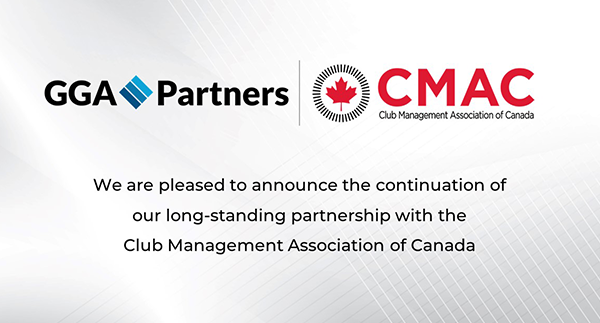In a recent study of the 4,000-plus private clubs in North America, GGA Partners™ found that almost nine in 10 clubs are full and experiencing significant wait-list growth. Certainly, the pandemic introduced by the novel coronavirus has brought unprecedented growth to private clubs. The question now is…how will clubs retain all of these members?
Here are three factors club leaders should monitor:
UNDERSTAND MARKET EVOLUTION
During the past several decades, four factors most consistently influenced demand for club memberships:
- Favorable location, as most club members drive less than 18 minutes one-way to reach their club from their homes or offices.
- Household income within the draw area of the club (the 18-minute reach).
- Employment status among the market audience, as to its reliability and growth potential.
- Educational attainment within the market area…more highly educated people are usually most capable of the financial requirements of membership.
The pandemic has blurred the historic lines as people have become less mobile and have found private clubs to be a safe haven for their families. Now, the market has evolved to maximize the influence of proximity; thus, proximity/location is of great significance. Current indications suggest that this reliance on clubs will endure as many professionals work remotely and have more time that was previously required for commuting to and from work.
Club leaders and operators must remain current regarding market conditions, requirements, and expectations.
MONITOR MEMBER SATISFACTION & ENGAGEMENT
Member satisfaction is the primary metric followed closely by engagement metrics. Knowing how engaged members are with the club is a simple measure of participation in special events, dining, new concepts, and programs. Survey members regularly using brief and to-the-point member satisfaction measures.
Alarm bells should sound when members are less engaged and enthusiastic about the club’s offerings.
WATCH FOR THE “CANARY IN THE COAL MINE”
Traditionally, a live canary was used to monitor air quality in the mine and would die if the air were not safe to breathe. The idiom suggests the importance of an early warning system for the club. Three dependable “canaries” for your club are:
Member Attrition – Most clubs have historic reference points for how many members are lost each year to mortality, relocation…life. In lean times, clubs struggled to sustain a balance between new members joining and those lost. Currently, more members want to join than wish to leave. Monitor the trendline as an early indicator.
New Member Leads Traffic – Current demand for new memberships is very strong. It will cool as society evolves past the pandemic. Club leaders should consider the flow of new inquiries – people who wish to join the club – as an early indication of market change. Each club should know its own successful conversion rate and understand that it must maintain leads in excess of attrition since some leads do not convert into full membership equivalents.
Consumer Confidence – Your club should make consumer confidence a part of each member survey using such simple questions as “are you confident for the club’s future” or net promoter metrics to track. The Conference Board is the source of the Consumer Confidence Index, which you can use as a broad indicator, and it does not replace the valuable guidance available from your own members.
Members are the lifeblood of private clubs. Recruiting and retaining them is the difference between success and failure.
GGA Partner Henry DeLozier penned this article for BoardRoom Briefs. It appeared in the June 22, 2024 edition.







